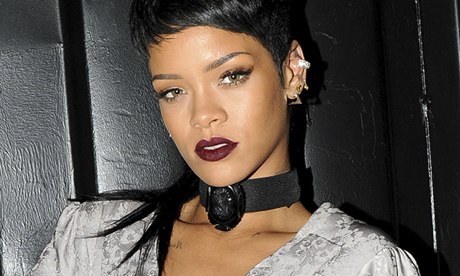
A growing clamour to tackle sexually explicit pop videos will find a new voice this week with the launch of a campaign group to demand cinema-style ratings on lewd content aimed at teenage and pre-teenage girls.
Tomorrow's event comes after the headteacher of a leading private girls' school this weekend joined other high-profile critics of the pop singer Miley Cyrus, who has unleashed an extraordinarily sexualised new image on her young fanbase. Jo Heywood of Heathfield School called on parents and teachers to give girls alternative images to the ones being peddled to them.
Heywood endorsed the efforts of newspaper columnist and author Caitlin Moran, who has written a TV sitcom to combat what she calls the one-dimensional image of teenage girls being hyped by the pop industry. Moran says girls are being force-fed the notion that "being hot" is all that they should aspire to.
The debate over explicit lyrics and videos exploded last month with new material from Miley Cyrus, Rihanna and Robin Thicke all coming in for intense criticism. A survey this month by parenting website Netmums showed strong parental disapproval over sexualised content in many music videos.
Tomorrow the new campaign, entitled Rewind&Reframe, a joint project run by the pressure groups End Violence Against Women Coalition, Imkaan and Object, will launch a website involving young women from a variety of backgrounds writing, blogging and commentating on the portrayal of women in contemporary music videos. A petition is also being started to call on the government to act.
Justine Roberts, founder of the website Mumsnet, said yesterday: "There's no doubt there's a huge amount of racism and sexism in music videos and it's great that this campaign raises awareness about it. I can't see any reason why these videos wouldn't be classified in the way that other forms of media are but the truth is that it won't be a silver bullet.
"Technology these days makes it pretty nigh on impossible to stop under-18s viewing and sharing this kind of material so as parents it's important to talk to them about what's wrong with it. As a society we need to consider how we've got to a situation where misogyny and racism is so commonplace."
Tomorrow evening a debate will be hosted at the House of Commons, chaired by Labour MP Kerry McCarthy and attended by MP Claire Perry, the prime minister's adviser on childhood. Perry has said she has the backing of David Cameron to push for solutions – including an age classification system for music videos and the clear labelling of airbrushed celebrity pictures.
Yesterday Mumsnet held its annual Blogfest, a meeting of politicians, authors, experts, bloggers and social media experts. Contributors to the Mumsnet chatrooms have long been debating and discussing the issues facing teenagers and many attending the event told the Observer they were against any kind of ban on explicit pop videos.
Actress, writer and disability campaigner Victoria Wright said any form of ban would simply make such videos more attractive to teenagers. "These highly sexualised images are a distraction from some great songs and it's really worrying. It's always women in skimpy clothes shaking their arses around men standing about in suits. But I'd hate to see a ban – who would judge it? One person's sexually explicit is another person's artistic expression. Bring back Dusty Springfield," she joked.
Among the keynote speakers was MP Stella Creasy, who was debating "what internet we want". She said: "The really important thing to say is that sexualisation of women has always happened and we have to address it. I think the internet is actually giving us the opportunity to address it because people are becoming active and finding others to collaborate with and so, in that sense, it is bringing people together.
"One-third of girls say they have experienced some sort of sexual harassment at school. Labour are trying to make sex and relationship education statutory in schools – right now it's only about the mechanics of biology – as this is very much linked to the culture of the objectified image of women. We are trying to recognise the range of issues. We need more than a technological or legal fix, we need to teach sex and relationship education in schools and say that is enough is enough. We have a strong commitment to that principles for both boys and girls.
"Above all, we need to teach our young people to be critical of what is age appropriate and we want them to be critical of these images and these videos of young sexualised women. They need to challenge the view that it is OK," she said.
"I am sick of young women being told what to do. Banning it won't stop it – addressing the problem will."

